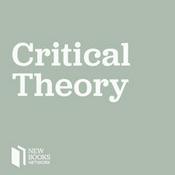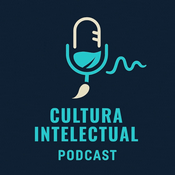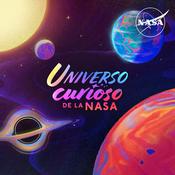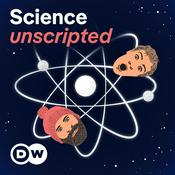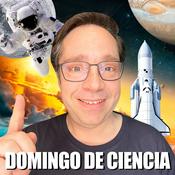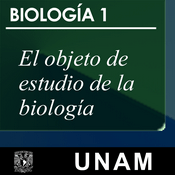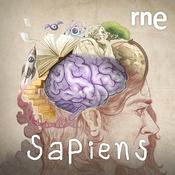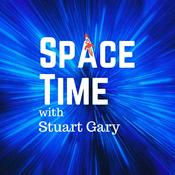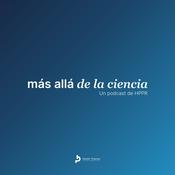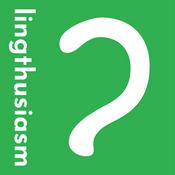55 episodios
- Let's dive into the surprising world of social robots! Recent research tells us that they have a very real impact on our emotions, habits, and health. Some robots soothe anxiety, boost motivation, or help people regain movement, while others simply offer a non-judgmental presence that humans sometimes struggle to match. In this episode, we explore why some people warm up to robots while others prefer to keep their distance. Along the way, we look at the quirks, challenges, and unexpectedly human moments that happen when a machine becomes part of the conversation.
This episode is sponsored by the Connected Minds program. Connected Minds, funded by the Canadian First Research Excellence Fund, is a 7-year collaborative program between York University and Queen’s University that focuses on interdisciplinary, ethical, and socially responsible research and technology development. The program offers funding for trainees, researchers, and artists. To learn more and get involved, visit the Connected Minds website.
Website: https://www.yorku.ca/research/connected-minds/a
Authors: Eve Racette, Golnar Taheri
Email: [email protected]
Instagram: @thinktwice_podcast
LinkedIN: Think Twice Podcast
Patreon: https://www.patreon.com/ThinkTwicePodcast
Disclaimer: Think Twice is a podcast for general information and entertainment purposes only. The content discussed in the episodes does not reflect the views of the podcast committee members or any institution they are affiliated with. The use of the information presented in this podcast is at the user’s own risk and is not intended to replace professional healthcare services. - Nostalgia isn’t just a warm, fuzzy feeling; it’s your brain revisiting the past in order to shape your future. In this episode, we explore how memories, emotion, personality and our senses work together to create nostalgia, and why certain songs, smells, or moments can instantly transport us back in time. We discuss how the brain uses nostalgia to regulate emotion, motivate us and even cope with stress and pain! From its surprising medical history to what modern neuroscience tells us, this episode unpacks why longing for the past is such a deeply human experience.
Authors: Deanne Pinto, Eve Racette, Golnar Taheri
Email: [email protected]
Instagram: @thinktwice_podcast
LinkedIN: Think Twice Podcast
Patreon: https://www.patreon.com/ThinkTwicePodcast
Disclaimer: Think Twice is a podcast for general information and entertainment purposes only. The content discussed in the episodes does not reflect the views of the podcast committee members or any institution they are affiliated with. The use of the information presented in this podcast is at the user’s own risk and is not intended to replace professional healthcare services. - The human brain doesn't mature in a straight line like we historically thought. A 2025 paper that looked at brains of thousands of individuals suggested that the brain actually rewires itself differently in 5 different stages of life. In this journal club episode, we break down fascinating results that show us that our brains are never truly done maturing! Join us in a journal club episode of this fascinating paper that has already cumulated well over 200k views worldwide!
Authors: Shima Hassanpour, Logan Hynes, Zara Sheikh, Eve Racette, Golnar Taheri
Email: [email protected]
Instagram: @thinktwice_podcast
LinkedIN: Think Twice Podcast
Patreon: https://www.patreon.com/ThinkTwicePodcast
Disclaimer: Think Twice is a podcast for general information and entertainment purposes only. The content discussed in the episodes does not reflect the views of the podcast committee members or any institution they are affiliated with. The use of the information presented in this podcast is at the user’s own risk and is not intended to replace professional healthcare services. - Ever wonder what’s really happening when your brain ‘fires’? In this episode, we explore neurotransmission, the rapid electrochemical messaging system that lets your neurons talk to each other and to the rest of your body, to allow you to plan, think, move, perceive, etc. We unpack neurotransmitters, receptors, and the multiple layers of complexity in which neurotransmitters shape mood, memory, movement, and more.
Authors: Eve Racette, Golnar Taheri
Email: [email protected]
Instagram: @thinktwice_podcast
LinkedIN: Think Twice Podcast
Patreon: https://www.patreon.com/ThinkTwicePodcast
Disclaimer: Think Twice is a podcast for general information and entertainment purposes only. The content discussed in the episodes does not reflect the views of the podcast committee members or any institution they are affiliated with. The use of the information presented in this podcast is at the user’s own risk and is not intended to replace professional healthcare services. - Varsity athletes face hundreds of head impacts each season, some big enough to cause a concussion, others so small they barely register. But science is suggesting that even these quiet hits that don't cause concussions may quietly reshape the brain. In this episode, we dive into the neuroscience of concussive and subconcussive impacts. We unpack what science is revealing about how the athlete brain changes and what this means for the future of sport, safety, and long-term brain health.
Coljae Berry is a second-year MSc student in the Centre for Neuroscience Studies at Queen's University, working under the supervision of Dr. Cook. In collaboration with the Queen's Varsity Football Team, his research investigates how repeated non-concussive impacts affect white matter microstructure and sensorimotor function in collegiate football players. He hopes to raise awareness for player safety and educate the public about the potential risks and long-term effects of playing football. Outside of his research, Coljae is passionate about rehabilitation for neurodegenerative diseases and traumatic brain injuries. He is also an active advocate for Black student voices on campus.
Authors: Eve Racette, Golnar Taheri
Email: [email protected]
Instagram: @thinktwice_podcast
LinkedIN: Think Twice Podcast
Patreon: https://www.patreon.com/ThinkTwicePodcast
Disclaimer: Think Twice is a podcast for general information and entertainment purposes only. The content discussed in the episodes does not reflect the views of the podcast committee members or any institution they are affiliated with. The use of the information presented in this podcast is at the user’s own risk and is not intended to replace professional healthcare services.
Más podcasts de Ciencias
Podcasts a la moda de Ciencias
Acerca de Think Twice Podcast
Get your critical thinking caps on! ‘Think Twice’ discusses controversial topics in the field of neuroscience with the goal of bringing more nuance and rigor to mainstream media. We’ll take you past the headlines by breaking down relevant neuroscience topics, interviewing experts in the field and overcoming misinformation/disinformation with evidence-based content. This podcast is run by a small group of graduate students at the Centre for Neuroscience Studies at Queen’s University. We hope to bring down barriers to the dissemination of scientific information, give early-career neuroscientists a voice, and foster a culture of entertaining and accessible science communication.
Sitio web del podcastEscucha Think Twice Podcast, Jefillysh: Ciencia Simplificada y muchos más podcasts de todo el mundo con la aplicación de radio.net

Descarga la app gratuita: radio.net
- Añadir radios y podcasts a favoritos
- Transmisión por Wi-Fi y Bluetooth
- Carplay & Android Auto compatible
- Muchas otras funciones de la app
Descarga la app gratuita: radio.net
- Añadir radios y podcasts a favoritos
- Transmisión por Wi-Fi y Bluetooth
- Carplay & Android Auto compatible
- Muchas otras funciones de la app


Think Twice Podcast
Escanea el código,
Descarga la app,
Escucha.
Descarga la app,
Escucha.












